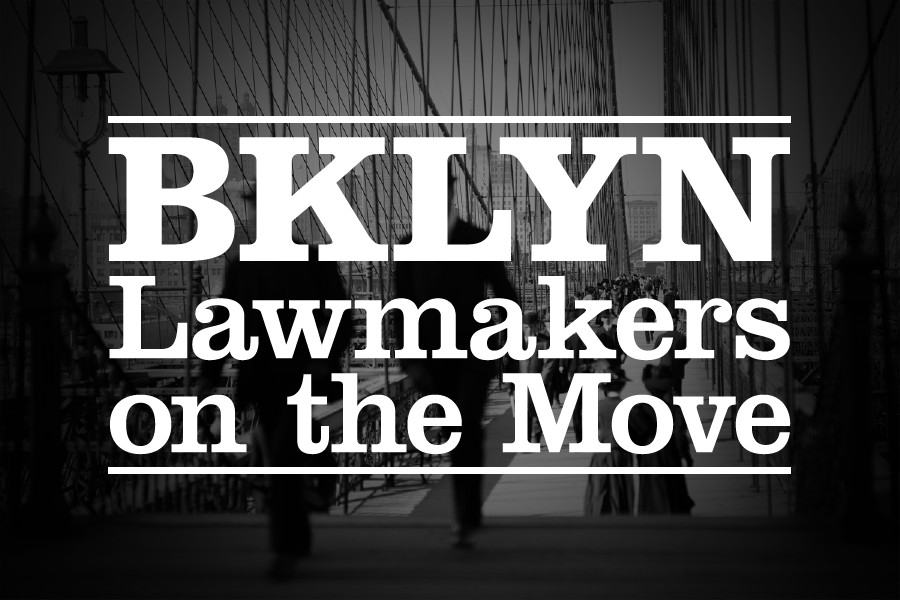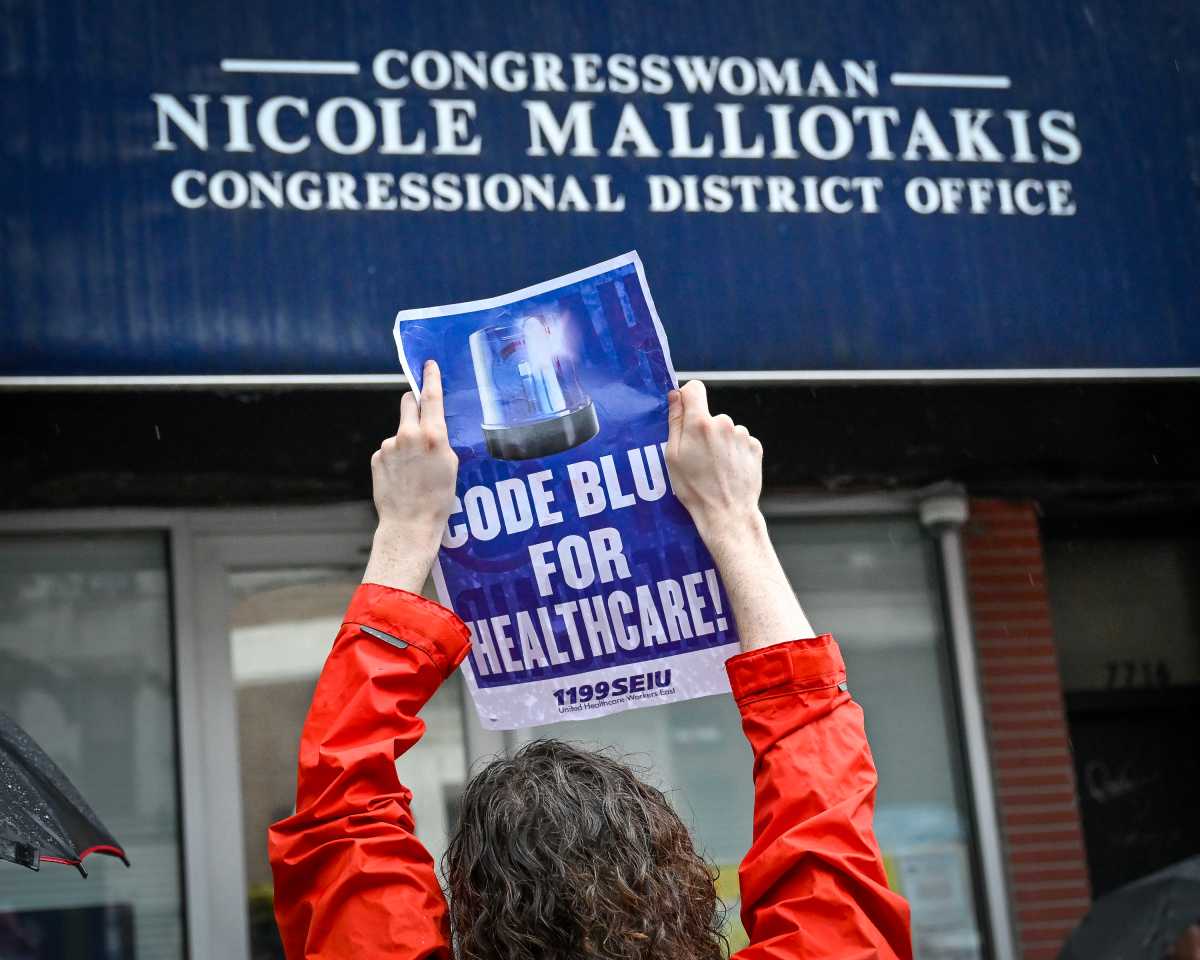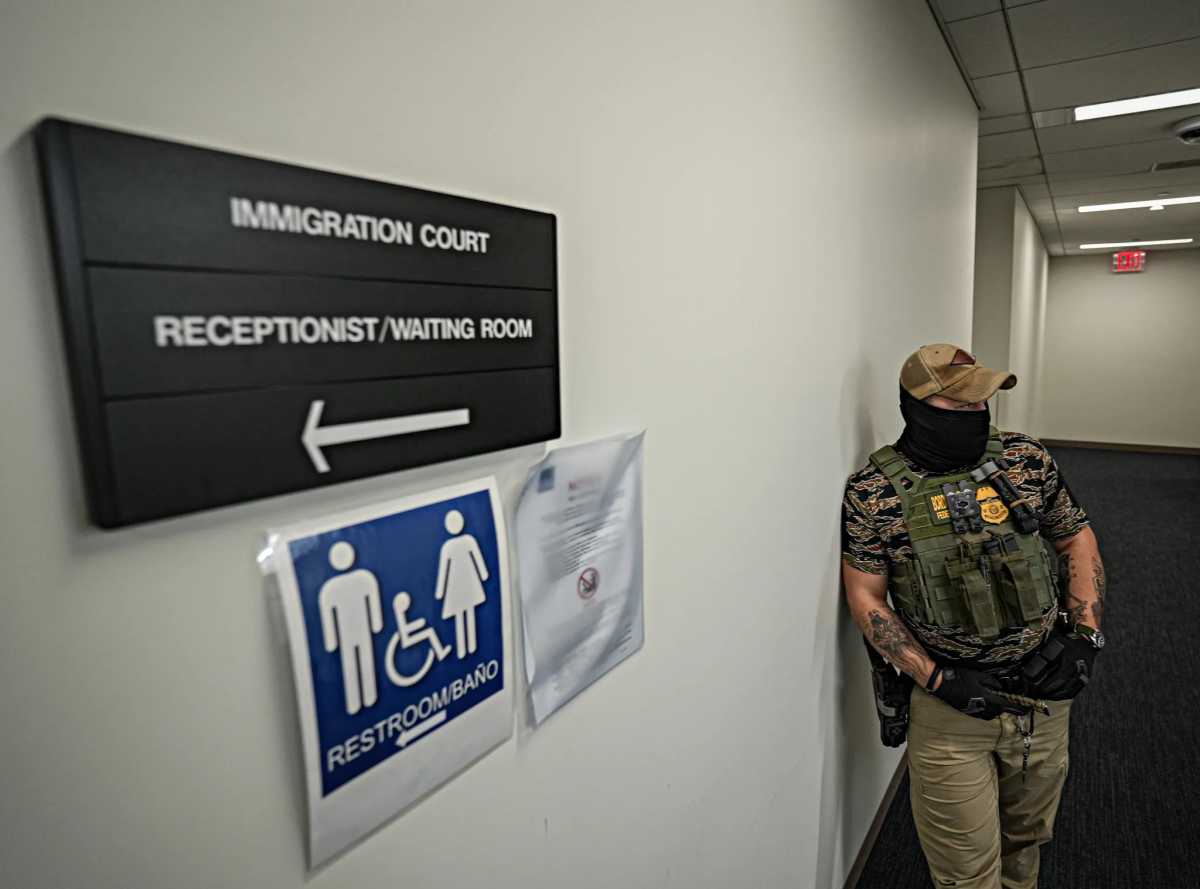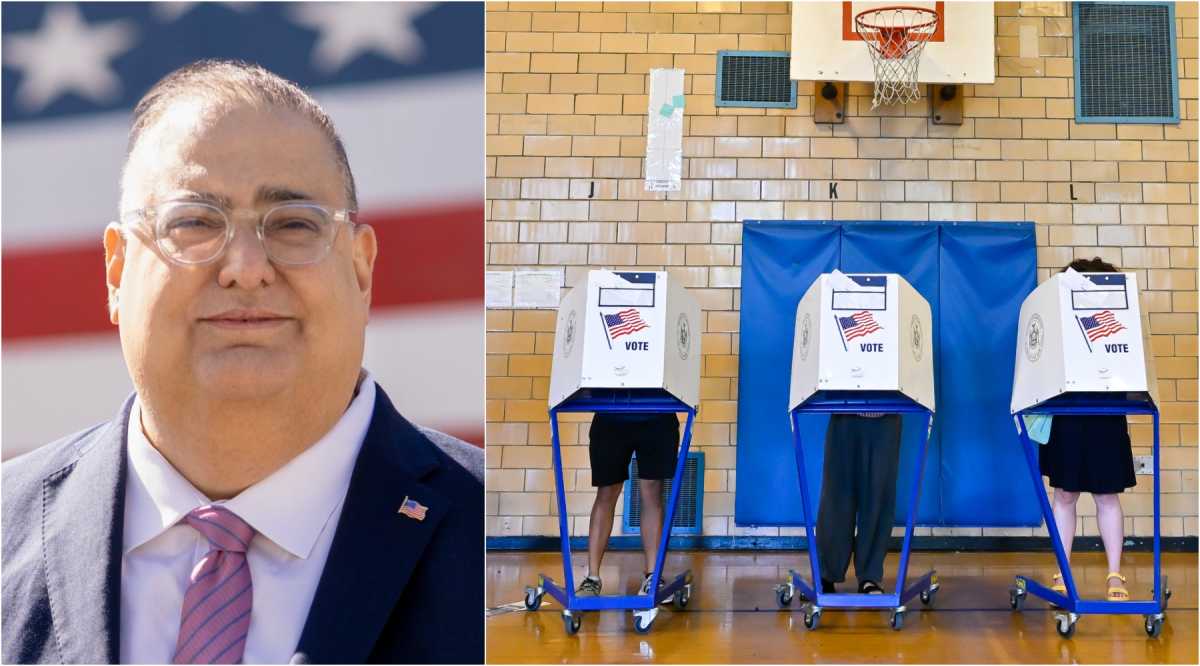Clarke Praises New U.S.-Caribbean Engagement Strategy

Congresswoman Yvette D. Clarke (D-Crown Heights, Flatbush, East Flatbush, Brownsville, Sheepshead Bay) is praising the new Department of State strategy for engagement with the Caribbean.
The multi-year strategy as mandated by the United States-Caribbean Strategic Engagement Act (H.R.4939) will establish a framework for enhanced U.S.-Caribbean relations in the areas of security, diplomacy, prosperity, energy, education and health.
H.R. 4939 was passed in late 2016 with the intent of consolidating US. engagement with the Caribbean and supporting the efforts of interested nations in the region.
“This reports marks an important step in the relationship between the United States and the nations of the Caribbean region, providing a framework for our shared work on issues from economic development and education to national security and fighting climate change. As the daughter of immigrants from the Nation of Jamaica and the proud representative of a vibrant Caribbean American community in Brooklyn, as well as Co-Chair of the Caribbean Caucus, I am excited to pursue the opportunities for collaboration discussed in this report,” said Clarke.
Clarke continued, “Now, the Department of State must work toward implementing these commitments, including efforts to lower the cost of energy, combat infectious disease, and increase diplomatic engagement in the region. I thank Representatives Eliot Engel and Ileana Ros-Lehtinen for their work on this issue and look forward to working together to strengthen US support for our Caribbean brethren.”
Reynoso Demands Removal of Non-Profit Properties from City’s Lien Sale

City Council Member Antonio Reynoso (D-Bushwick, Williamsburg) will demand the removal of non-profit properties from this year’s City lien sale today.
Just yesterday, Reynoso introduced Intro 1656, a bill to exempt non-profits (including houses of worship) from having their liens sold in the City’s tax lien sale.
The tax lien sale takes tax, water, and sewer debt owed to the City and converts it into liens, which subsequently are sold to a designated private trust managed by the Bank of New York Mellon. The trust can collect 18 percent interest (compounded daily), pursue collection, and initiate foreclosure, which leads to the auction of property to the highest bidder. Buyers then can modify the properties to their liking, including demolishing old churches and other community institutions, many of which are active sites.
Reynoso is calling on the Department of Finance to proactively protect properties that are threatened by this year’s sale. Friday, June 23 is the last day property owners can pay debt or enter into payment agreements to be removed from the sale — unless the City intervenes.
“Tax exempt properties should be exactly that – exempt. Often non-profits and houses of worship that have liens sold should never have received those liens in the first place. Something as simple as a paperwork error can lead to foreclosure, and that is unacceptable. This legislation would exempt these properties by default and help protect our communities’ institutions and scared places from being sold to private developers,” said Reynoso.
The event is slated for 3 p.m. today, June 22, on the Steps of City Hall in Lower Manhattan.
Dilan Doubtful Of New MTA Proposal By Governor Cuomo

State Senator Martin Malavé Dilan (D-Bushwick, East New York, Ocean Hill/Brownsville) is doubtful of Governor Andrew Cuomo’s proposal to add two-state-controlled seats to the Metropolitan Transportation Association (MTA).
Currently, Cuomo appoints the agency’s chairman and has six voting seats out of 14 on the board. Under the new plan, the MTA board would grow by two voting members, both appointed by the governor and the vote by the board chairman would count as two instead of one. This would give Cuomo nine out of the 16 voting seats, majority control over the entire MTA board.
In the last couple of months, the MTA has suffered a series of signal problems, power outages and police investigations that have caused chronic service delays. Last month, the MTA announced a six-point-plan to address the issues including long-term capital improvements to signal and track malfunctions and subway car equipment issues amongst other problems.
“I’m reluctant to hand over control of anything to anybody for any reason. If the Governor had proposed how his majority on the MTA Board would lead to additional resources and a reassessment of the authority’s upkeep priorities, I’d have a better sense of how his proposal would produce results. I do not doubt the Governor. However, we have dedicated funding to transit, it gets swept; and we have agreed upon year-to-year funds we budget for the MTA, it’s been cut. I’ve not heard how the make-up of the board has any effect on those two issues, or others. The truth is, I’m not hearing anything that would amount to a plan to alleviate the burden on New York straphangers,” said Dilan.
CM Williams Pushes For Veteran Anti-Discrimination Bill

City Council Member Jumaane Williams (D-Flatbush, East Flatbush, Midwood) is pushing for the passage of Intro. 1259-A, legislation to prohibit discriminating on the basis of uniformed service, and provide a local recourse for veterans who have been victims of discrimination.
There are currently Federal and State laws protecting current and former service members from discrimination; however, it can sometimes be difficult for service members to find the time or resources to adequately pursue discrimination claims. Existing Federal laws do not protect veterans from housing discrimination.
The bill would give veterans and active military members direct protections under City law against discrimination in housing, employment, and public accommodations.
In cases where the U.S. Department of Housing & Development (HUD) has found discrimination against uniformed service members and taken action, the discrimination was based on disability, not veteran status. Federal and State laws designed to lessen the economic and legal burden of serving, which allow service members to break their leases in the case of deployment, for example, may even have the unintended consequence of encouraging discrimination based on uniformed service in selecting tenants.
“As a society, we continually hold our veterans up as valuable protectors of the country, yet we repeatedly leave them vulnerable and undefended after they fulfill their end of the bargain. While their commitment solicits respect from us, it also at times makes them some of the most vulnerable members of our society. It is our duty as Americans and legislators to protect them, provide them with support, and make sure the promises being made to them are kept,” said Williams.
Eugene Gets June 22 Declared As Veterans Tribute and Advocacy Day

City Council Member Mathieu Eugene (D-Prospect-Lefferts, Ditmas Park; parts of Crown Heights, Flatbush, East Flatbush) applauded the passage of Resolution 1412, declaring June 22 as Veterans Tribute and Advocacy Day in New York City.
June 22nd signifies the date when President Franklin Delano Roosevelt signed the G.I. Bill, a landmark piece of legislation that provided a range of benefits to returning World War II Veterans.
The legislation will work to promote the interests of veterans in the city and assist those who require critical services and opportunities.
“It is our moral obligation to honor the sacrifices of the brave men and women who have admirably served our country,” said Council Member Eugene. “As a society, we must do more to fulfill the needs of veterans, not only in New York City, but across the United States. By declaring June 22nd as New York City Veterans Tribute and Advocacy Day, we are sending a powerful message to our veterans that we will always value their immense contributions to the great fabric of the United States,” said Eugene.
BK Lawmakers Applaud Passage of Dyslexia Bill


Assembly Member Jo Anne Simon (D-Downtown Brooklyn, DUMBO, Boerum Hill, Carroll Gardens, Cobble Hill) ) and State Senator Martin Golden (R-Bay Ridge, Dyker Heights, Marine Park, Gerritsen Beach) applauded unanimous passage of dyslexia legislation (A.8262).
The bill instructs the State Department of Education to develop a guidance memorandum for schools consistent with the federal requirements and inform schools that they may include the names of specific learning disorders, such as dyslexia, dysgraphia or dyscalculia in Individualized Education Plans (IEPs). As a result, schools will be able to provide targeted language-based interventions and help more students learn to read and be successful students.
Previously, school districts believed that schools were not allowed to use the word “dyslexia” in an IEP, but could use only the broad classification “Learning Disability” from the federal Individual with Disabilities Act (IDEA). However, federal regulations contained no such restriction and no similar restriction existed in connection with other IDEA disability classifications. As a result, schools freely named specific visual or mobility impairments, such as macular degeneration, or muscular dystrophy, or cerebral palsy. While the U.S. Department of Education has issued regulatory guidance clarifying the ability to use dyslexia,the term continues to be an area of confusion in educational settings.
“For far too long, there has been inadequate attention to dyslexia and confusion about the ability of schools to even use the word ‘dyslexia’ in IEPs. With a clear focus on the identification of dyslexia, schools will be able to effectively identify and treat this common learning disability that affects an estimated 15% of the population. When children’s learning needs are properly identified, educators will be in a better position to teach them, and children who currently struggle in silence will be able to shine,” said Simon.
“Students who are diagnosed with dyslexia, dyscalculia and dysgraphia require unique and specialized educational learning. Consequently, it is vitally important that the Commissioner of Education provide detailed guidelines to every school district on how to successfully assist students afflicted with these remediable disabilities. I am confident that this bill will encourage the dissemination of proper guidelines and establish educational strategies to help students with dyslexia, dyscalculia and dysgraphia,” said Golden.
Cymbrowitz Commends Bill To Expand Property Tax Relief For Senior & Disabled Homeowners

Assemblyman Steven Cymbrowitz (D-Sheepshead Bay, Manhattan Beach), Chair of the Assembly’s Housing Committee, is commending the passage of a new bill (A.7463-A) to expand property tax exemptions for senior citizens and disabled New Yorkers.
Under current law, senior citizens and disabled individuals making up to $37,400 annually can receive property tax relief under the Senior Citizen Homeowners’ Exemption (SCHE) or the Disability Homeowners’ Exemption (DHE) programs. The legislation would raise the maximum income threshold to $58,400, the first change to the cap since 2009.
Currently, SCHE and DHE provide a property tax exemption of 50 percent of the assessed property value for senior and disabled homeowners making up to $29,000 per year, with homeowners making up to $37,400 receiving a smaller exemption on a sliding scale. Under the new legislation, senior and disabled homeowners making up to $50,000 would be eligible for the 50 percent exemption, with homeowners making up to $58,400 receiving a smaller exemption on a sliding scale. The city estimates that raising the income threshold would provide eligible senior and disabled homeowners with an average benefit of $1,750.
More than 57,000 New York City homeowners are currently enrolled in these programs. This adjustment would allow another 32,000 households to qualify. The bill has already passed the Senate and will next go to Governor Andrew Cuomo for signature.
“With higher than average health expenses and steady increases in the cost of living, senior and disabled homeowners are fighting harder than ever to make ends meet and still pay their property taxes. This is unfair, it’s morally wrong and it’s long overdue that we correct it legislatively,” said Cymbrowitz.










